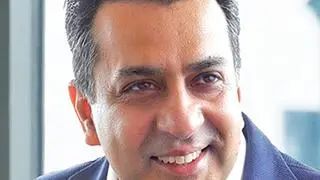Changes in the tax regime may prompt BPO firms to look outside India more for expansion.
Take the Nasdaq-listed BPO major ExlService Holdings, which expects 20-30 per cent of its new capacity expansion in 2011 to be outside India, as tax breaks under the STP scheme head for a phase-out and MAT is imposed on Special Economic Zones.
Last year, the company expanded its total seat capacity by 21 per cent — all of which was in India.
“Imposition of MAT on SEZs is a bigger disappointment than the STP phase-out. Government came out with the SEZ scheme and substantial investments have been made by companies. Whatever be the policy, there has to be visibility because it allows businesses to plan their investments,” Mr Rohit Kapoor, President and CEO of EXL told Business Line .
Mr Kapoor admitted that changes would prompt the company to invest outside India. “There will be a difference in emphasis…We were earlier in the Philippines and geographies such as Central and Eastern Europe…but now the expansion (in overseas locations) will be more deliberate,” he said.
Explaining the strategy, Mr Kapoor said in 2010 — EXL runs the January-December fiscal — the capacity expansion stood at 2,300 seats. “We expanded our total capacity by 21 per cent, and all of that expansion happened in India. But in 2011 we will certainly look at a relatively higher proportion of infrastructure development outside India,” Mr Kapoor said.
Asked about the geographies that were under the company's radar now, he said, “It will be countries like the Philippines. Also other geographies, including South Africa, are financially attractive, although we have not finalised our plans on that yet.”
As it is, countries such as South Africa and the Philippines are aggressively wooing BPO investments, either through a promise of financial incentives or by flaunting the cultural alignment of their workforce to key Western markets such as the US and the UK.
“When businesses make investments on infrastructure, there needs to be stability for at least three-five years at a policy level,” he said.
Meanwhile, EXL has posted a nearly 11 per cent jump in net profit for the quarter ended December 2010 at $8.3 million compared with $7.5 million in the quarter ended December 2009. The net profit for the year ended December 2010 stood at $26.6 million against $15.7 million for the year ended December 2009. Revenues for the December quarter were at $70 million against $59.4 million in the same period of the earlier year. In fiscal 2010, revenues increased 32.3 per cent at $252.8 million compared with $191 million in the previous year.
For 2011, it has provided revenue guidance of $295-305 million, representing an annual revenue growth of 17-21 per cent.







Comments
Comments have to be in English, and in full sentences. They cannot be abusive or personal. Please abide by our community guidelines for posting your comments.
We have migrated to a new commenting platform. If you are already a registered user of TheHindu Businessline and logged in, you may continue to engage with our articles. If you do not have an account please register and login to post comments. Users can access their older comments by logging into their accounts on Vuukle.